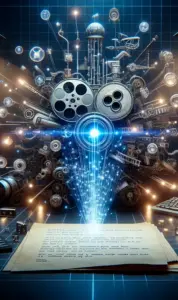
A recent surge in investment for solar geoengineering technologies has raised concerns among scientists about the implications for public trust and scientific integrity. Stardust, a startup co-founded by an American-Israeli team, announced it secured $60 million in funding, marking the largest known venture capital round for a solar geoengineering company. This financial backing aims to develop systems that could potentially be deployed by the beginning of the next decade, as reported by Heatmap.
Prominent researchers in the field, including David Keith, a professor of geophysical sciences at the University of Chicago, and Daniele Visioni, an assistant professor at Cornell University, have expressed their growing unease about the trend of privatizing climate intervention technologies. They argue that the push for profit-driven solutions could undermine scientific research and public trust in climate science. The scientists also challenge some of the technical claims made by companies in this burgeoning sector.
The Simpsons and Future Predictions
In a lighter vein, the animated series The Simpsons has garnered attention for its uncanny ability to seemingly predict future events. From Donald Trump‘s presidency to the emergence of the “Osaka flu,” which some have linked to the COVID-19 pandemic, the show has been credited with foresight on numerous occasions. Notably, it forecasted the US Olympic curling team’s victory over Sweden eight years before it occurred.
Al Jean, the show’s longest-serving showrunner, has reflected on the theories surrounding these predictions, contributing to ongoing discussions about the cultural impact of the series. As the show continues to air, its legacy as a supposed oracle remains a topic of fascination.
AI in Therapy Raises Ethical Questions
In a separate technological development, clients are increasingly encountering AI in therapeutic settings, raising concerns about privacy and trust. Reports indicate that therapists have been using ChatGPT during sessions, leading to a breach of confidentiality when clients inadvertently observe AI-generated analyses on therapists’ screens. This practice has sparked debates over the ethical implications of using AI in mental health care.
The MIT Technology Review highlighted these incidents in a recent article, emphasizing the growing number of clients who have found themselves on the receiving end of AI-generated communications from their therapists. The potential erosion of trust in these professional relationships presents a significant challenge as technology becomes more integrated into personal care.
The latest developments in technology continue to evolve rapidly, with implications that reach into various facets of life and society. As the dialogue around solar geoengineering, media predictions, and AI in therapy unfolds, the intersection of innovation, ethics, and public perception remains crucial for understanding the future landscape of technology.







